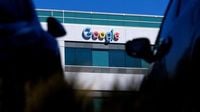On September 2, 2025, a federal judge delivered a landmark ruling in the long-running antitrust case against Google, sparing the tech giant from the most severe penalties while imposing new restrictions designed to foster competition in the online search market. The decision, handed down by U.S. District Judge Amit Mehta, means Google will not have to divest its popular Chrome browser or the Android operating system—an outcome that sent Alphabet’s shares soaring and left investors breathing a collective sigh of relief, according to BBC and CNBC.
For years, Google has faced scrutiny over its dominance in internet search and the methods it used to maintain that position. The antitrust case, originally filed in 2020 during President Trump’s administration, culminated in a verdict last year that found Google had violated U.S. antitrust law and operated as a monopolist, as reported by CNN and Axios. The remedies phase of the trial, which concluded this week, was closely watched not only by Silicon Valley but also by global regulators and competitors eager to see whether the United States would force a historic breakup of one of the world’s most powerful technology companies.
Judge Mehta’s decision struck a delicate balance: while Google dodged the threat of being split up, the company must now share certain search data with qualified competitors and is barred from entering into exclusive contracts that previously helped it maintain its dominance. According to Axios, Google can no longer make deals that require device makers or browser companies to exclusively feature Google products, such as Search, Chrome, Google Assistant, or its Gemini AI app, as a condition for licensing the Google Play app store. However, Google is still allowed to pay partners—such as Apple—for preloading or placing its products as defaults, a practice that has generated billions of dollars in revenue for both companies.
The court’s ruling was clear: “Google will not be required to divest Chrome; nor will the court include a contingent divestiture of the Android operating system in the final judgment,” the filing stated, as reported by CNBC. Judge Mehta wrote, “Plaintiffs overreached in seeking forced divestiture of these key assets, which Google did not use to effect any illegal restraints.” The judge acknowledged that divesting Chrome and Android would have gone beyond the case’s focus on search distribution and could have harmed both consumers and Google’s partners.
Still, the ruling imposes meaningful changes. Google must make available certain search index data and user interaction data to rivals, though not advertising data, and must do so on “ordinary commercial terms that are consistent with Google’s current syndication services,” as detailed by Bloomberg and CNN. The court narrowed the scope of data to be shared, excluding granular advertising information, and required that sharing take place under terms similar to existing commercial agreements. The intent, according to the Department of Justice, is to “pry open the market for general search services, which has been frozen in place for over a decade.” DOJ antitrust chief Gail Slater posted on X, “Today’s remedy order agreed with the need to restore competition to the long-monopolized search market, and we are now weighing our options and thinking through whether the ordered relief goes far enough in serving that goal.”
The ruling also addresses the future of artificial intelligence in search, a market that is rapidly changing. The DOJ emphasized that the remedies must prevent Google from using “the same anticompetitive tactics for its GenAI products as it used to monopolize the search market.” Judge Mehta noted that the rise of generative AI tools “changed the course of this case,” and that the court’s job was not just to resolve past disputes but to “gaze into a crystal ball and look to the future.”
Google’s leadership, while relieved to avoid a breakup, expressed reservations about the new requirements. In a statement cited by Axios and CNN, Lee-Anne Mulholland, Google’s vice president of regulatory affairs, said, “We have concerns about how these requirements will impact our users and their privacy, and we’re reviewing the decision closely.” Google’s blog post echoed this apprehension: “The Court has imposed limits on how we distribute Google services, and will require us to share Search data with rivals. We have concerns about how these requirements will impact our users and their privacy, and we’re reviewing the decision closely.”
Investors, on the other hand, responded enthusiastically. Shares of Alphabet rose by more than 6% immediately after the ruling, according to BBC, and climbed as much as 8% in after-hours trading, CNBC reported. Apple’s stock also got a 4% boost, as the ruling allows Apple to continue its lucrative deal with Google, which reportedly brings in about $20 billion a year for making Google the default search engine on iPhones.
The decision to ban exclusive contracts but allow ongoing payments to partners reflects the court’s attempt to balance competition with market realities. As Judge Mehta wrote, “Cutting off payments from Google almost certainly will impose substantial—in some cases, crippling—downstream harms to distribution partners, related markets, and consumers, which counsels against a broad payment ban.”
Despite the restrictions, analysts believe Google remains in a strong position. Robert Siegel, a lecturer at Stanford’s Graduate School of Business, told CNN that the outcome is a win for Google overall, though the company may have to work harder to attract consumers in the face of rising competition from AI-powered search engines like OpenAI and Perplexity. Carolina Milanesi, president of Creative Strategies, noted that many device makers will likely continue to preload Google services because of their popularity, regardless of the end of exclusive contracts.
Meanwhile, the Department of Justice is weighing its next steps. Assistant Attorney General Abigail Slater stated, “We will continue to review the opinion to consider the Department’s options and next steps regarding seeking additional relief.” Google, too, has announced plans to appeal the ruling, which could eventually send the case to the Supreme Court. In the interim, the data-sharing requirements may not take effect right away, as the appeals process unfolds, BBC reported.
The case has far-reaching implications for the tech industry. Other giants, including Amazon and Meta, are also under antitrust scrutiny, and the outcome of the Google case may set precedents for future enforcement actions. Judge Mehta’s ruling acknowledges the challenge of regulating rapidly evolving markets: “Unlike the typical case where the court’s job is to resolve a dispute based on historic facts, here the court is asked to gaze into a crystal ball and look to the future. Not exactly a judge’s forte.”
By 2020, an astonishing 95% of all U.S. search queries on mobile devices went through Google, a testament to the company’s reach and the stakes of this case. The ruling may not have transformed the tech landscape overnight, but it signals a new era of oversight in digital markets, where the balance between innovation, competition, and consumer choice remains at the heart of the debate.



